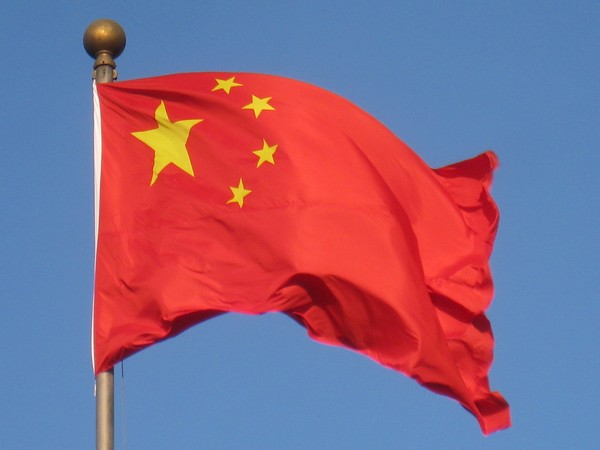The rapid development of artificial intelligence (AI) weapons is emerging as a major global security concern, with the Chinese Communist Party (CCP) at the forefront of this dangerous arms race. As experts warn of the potentially catastrophic implications of AI-powered weaponry, the CCP’s aggressive pursuit of these technologies threatens to destabilize the global order and unleash unprecedented destruction.
At the heart of this issue lies the CCP’s relentless drive to militarily surpass the United States, coupled with its disregard for international norms and ethical considerations. Unlike democratic nations that grapple with the moral implications of autonomous weapons, the CCP shows no such restraint. As Bradley Thayer, a senior fellow at the Center for Security Policy, ominously notes, the implications of AI weapons “may be the equal of the nuclear revolution.”
The CCP’s development of AI-powered autonomous weapons is progressing at an alarming rate. From drones and tanks to ships and submarines, China is rapidly expanding its arsenal of AI-enabled killing machines. Perhaps most disturbingly, China has already armed quadruped robot dogs with machine guns, bringing the stuff of science fiction nightmares into reality. The regime’s ability to mass-produce these weapons once they reach marketable usefulness could flood the global market with lethal autonomous systems, posing a grave threat to international security.
Even more concerning is the CCP’s experimentation with AI in military command and control. The People’s Liberation Army (PLA) has conducted battle exercises where AI was put directly in command, showcasing the regime’s willingness to cede critical decision-making to machines. This approach not only increases the risk of unintended escalation but also removes crucial human judgment from matters of life and death.
The CCP’s embrace of AI weapons systems fundamentally undermines global stability. By potentially neutralizing traditional nuclear deterrence strategies, AI weapons could make conventional conflicts between nuclear powers more likely. This erosion of long-standing security paradigms increases the risk of conflicts spiraling out of control, with AI systems potentially escalating situations faster than humans can intervene.
Moreover, the CCP’s track record suggests it is unlikely to adhere to any international safeguards or ethical guidelines regarding AI weapons. While the principle of keeping a “human in the loop” for lethal force decisions is widely accepted in the West, the CCP has shown no such commitment. As James Fanell, a former naval intelligence officer, bluntly states, “The idea that China would constrain themselves in the use of it, I don’t see that.”
This disregard for ethical considerations extends to the CCP’s potential proliferation of AI weapons technology. Given its history of supplying weapons to rogue regimes and terrorist groups, there is a real danger that the CCP could provide autonomous weapons to non-state actors, further destabilizing volatile regions and potentially unleashing these technologies against Western interests.
The CCP’s development of AI weapons also feeds into its broader strategy of asymmetrical warfare. By investing heavily in these technologies, the regime seeks to leapfrog traditional military advantages held by the United States and its allies. This approach could embolden the CCP to take more aggressive actions, believing it has a technological edge that could overwhelm conventional forces.
Furthermore, the opaque nature of the CCP’s political system means there are few checks on its military AI development. Unlike in democratic societies where public opinion and ethical concerns can influence policy, the CCP faces no such constraints. Chinese companies and universities eagerly pursue military contracts without the kind of pushback seen in Western nations, accelerating the development of these dangerous technologies.
The CCP’s pursuit of AI weapons also reflects its broader authoritarian worldview. Just as the regime uses AI for domestic surveillance and control, it sees military AI as another tool to assert its power and suppress dissent, both at home and abroad. This mindset, coupled with advanced autonomous weapons, creates a frightening prospect for human rights and international law.
The international community must recognize the grave threat posed by the CCP’s unchecked development of AI weapons. Efforts to establish global norms and regulations around these technologies are critically important, but they must also acknowledge the reality that the CCP is unlikely to abide by any agreements it finds inconvenient. As Thayer grimly observes, for the CCP, “Any agreement is a pie crust made to be broken.”
In light of this challenge, the United States and its allies must prioritize the development of countermeasures and deterrents to AI weapons. This may include electromagnetic weapons to disable AI systems, as suggested by Chuck de Caro, or the creation of an “AI Manhattan Project” to establish a credible deterrent against CCP aggression.
However, pursuing such a course risks further escalating the AI arms race, trapping the world in a new and potentially more dangerous cold war. The dilemma facing Western democracies is stark: how to defend against the CCP’s AI weapons threat without compromising their own values and potentially exacerbating global instability.
Ultimately, the CCP’s reckless pursuit of AI weapons represents a critical threat to global security and stability. Its disregard for ethical considerations, coupled with its aggressive military ambitions, creates a volatile situation that could easily spiral out of control. The international community must unite to confront this challenge, developing strategies to contain the CCP’s AI weapons program while working towards meaningful global regulations.
As AI technologies continue to advance at a breakneck pace, the window for effective action is rapidly closing. The CCP’s integration of AI into its military doctrine represents a turning point in modern warfare, one that could reshape the global balance of power and unleash untold destruction if left unchecked. The world must act decisively to curb this threat before it’s too late, lest we find ourselves at the mercy of machines programmed by an authoritarian regime with little regard for human life or international stability.

